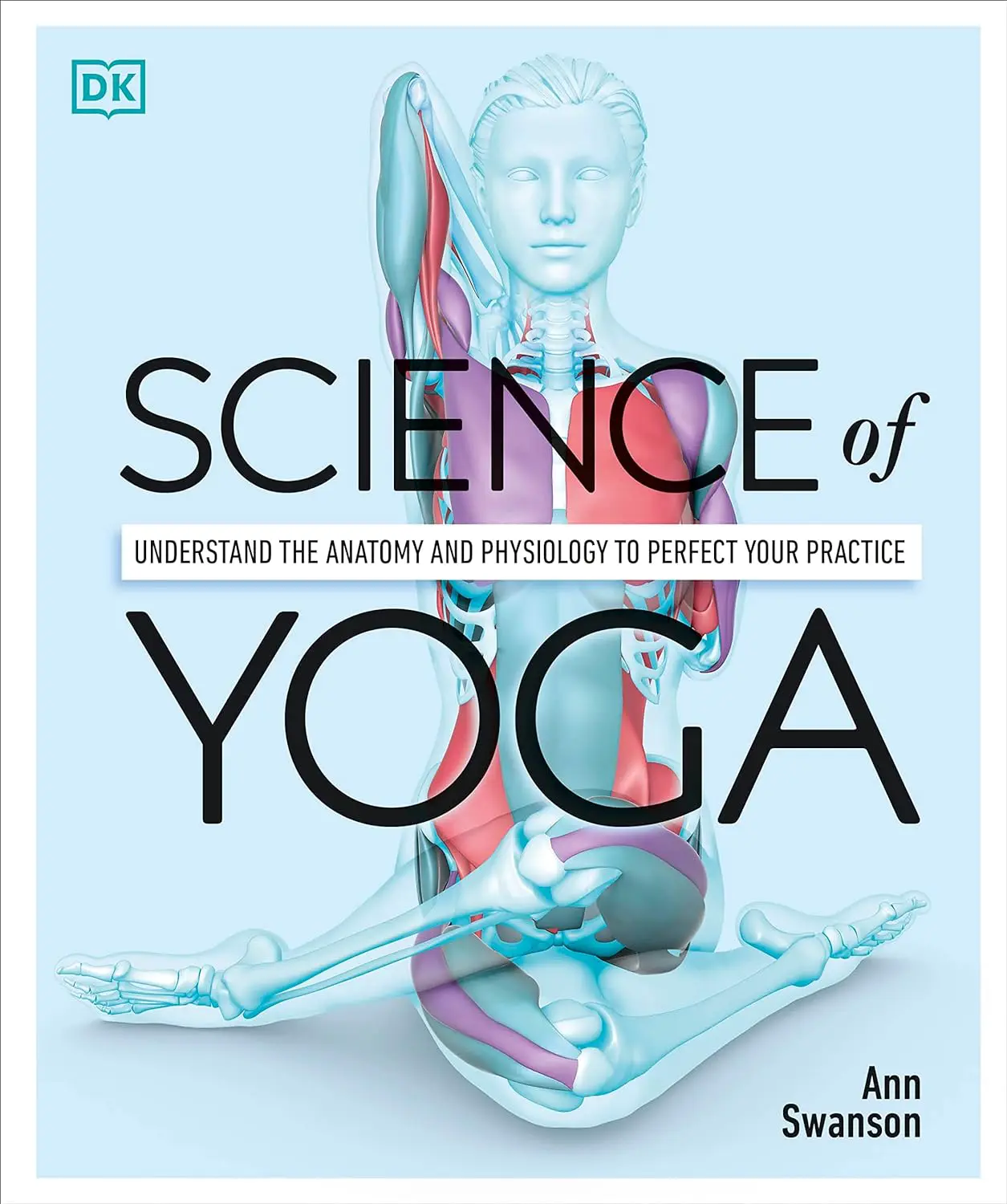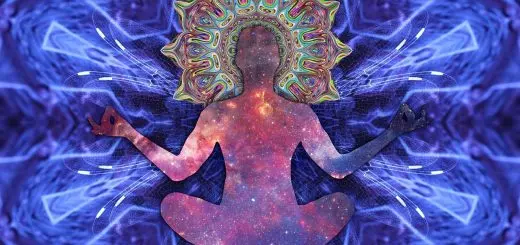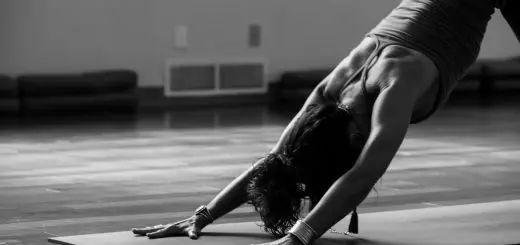Chakras: Journey through Yoga’s Energy Centers

Before diving in, please note: This post is for informational purposes only. If you’d like to know more about how we approach topics, feel free to check out our friendly Disclaimer Page.
Hey there, amazing readers! 
We’re committed to delivering quality posts, and your support (even just sticking around despite the ads) means everything to us. So, bear with us, and thanks for helping us keep the good vibes rolling. Now, on to the fun stuff!
TRANSLATE BUTTON AT THE END OF THE ARTICLE
Introduction to Chakras and Yoga
Many people who practice yoga have heard of chakras, the energy centers that run along the spine.
These energy centers are crucial in yogic philosophy as they are believed to be key points where energy flows within the body.
Understanding the chakras and how they relate to yoga practice can enhance one’s overall physical, emotional, and spiritual well-being.
By delving into the realm of chakras, yogis can unlock the secrets of their inner selves and cultivate a deeper connection to the world around them.
Understanding the Seven Chakras
The seven chakras are often depicted as spinning wheels of energy that correspond to different areas of the body.
Each chakra is associated with specific colors, elements, and characteristics.
The seven chakras are as follows:
The Root Chakra (Muladhara)
The Sacral Chakra (Swadhisthana)
The Solar Plexus Chakra (Manipura)
The Heart Chakra (Anahata)
The Throat Chakra (Vishuddha)
The Third Eye Chakra (Ajna)
The Crown Chakra (Sahasrara)
Each chakra plays a vital role in our physical, emotional, and spiritual well-being, and imbalance in any of these energy centers can manifest as physical or emotional discomfort.
The Root Chakra: Muladhara
The Root Chakra, or Muladhara, is located at the base of the spine and is associated with feelings of safety, security, and grounding.
When this chakra is balanced, one feels stable and secure in their life.
To balance the Root Chakra, yogis can practice grounding poses such as Tadasana (Mountain Pose) or Virabhadrasana (Warrior Pose).
Engaging in these poses can help release any fears or insecurities that may be blocking the energy flow in the Root Chakra.
The Sacral Chakra: Swadhisthana
The Sacral Chakra, or Swadhisthana, is located in the lower abdomen and is associated with creativity, sensuality, and emotional balance.
When this chakra is balanced, one feels connected to their emotions and is able to express themselves freely.
To balance the Sacral Chakra, yogis can practice hip-opening poses such as Baddha Konasana (Bound Angle Pose) or Gomukhasana (Cow Face Pose).
These poses can help release any emotional blockages and foster creativity and self-expression.
The Solar Plexus Chakra: Manipura
The Solar Plexus Chakra, or Manipura, is located in the upper abdomen and is associated with personal power, self-esteem, and confidence.
When this chakra is balanced, one feels empowered and in control of their life.
To balance the Solar Plexus Chakra, yogis can practice core-strengthening poses such as Navasana (Boat Pose) or Chaturanga Dandasana (Four-Limbed Staff Pose).
These poses can help build confidence and inner strength, allowing the energy to flow freely in the Solar Plexus Chakra.
The Heart Chakra: Anahata
The Heart Chakra, or Anahata, is located in the center of the chest and is associated with love, compassion, and emotional healing.
When this chakra is balanced, one feels open and connected to others in a loving and compassionate way.
To balance the Heart Chakra, yogis can practice heart-opening poses such as Ustrasana (Camel Pose) or Bhujangasana (Cobra Pose).
These poses can help release any feelings of hurt or resentment and cultivate love and compassion towards oneself and others.
The Throat Chakra: Vishuddha
The Throat Chakra, or Vishuddha, is located in the throat area and is associated with communication, self-expression, and creativity.
When this chakra is balanced, one feels able to express themselves clearly and authentically.
To balance the Throat Chakra, yogis can practice poses that open the throat area such as Sarvangasana (Shoulder Stand) or Halasana (Plow Pose).
These poses can help release any blockages in communication and enhance self-expression and creativity.
The Third Eye Chakra: Ajna
The Third Eye Chakra, or Ajna, is located between the eyebrows and is associated with intuition, wisdom, and insight.
When this chakra is balanced, one feels connected to their inner wisdom and can trust their intuition.
To balance the Third Eye Chakra, yogis can practice poses that focus on the forehead area such as Balasana (Child’s Pose) or Shavasana (Corpse Pose).
These poses can help enhance intuition and insight, allowing one to see beyond the physical realm and tap into their deeper truths.
The Crown Chakra: Sahasrara
The Crown Chakra, or Sahasrara, is located at the top of the head and is associated with spiritual connection, enlightenment, and oneness with the universe.
When this chakra is balanced, one feels a deep sense of spiritual connection and unity with all beings.
To balance the Crown Chakra, yogis can practice meditation and poses that focus on the crown of the head such as Padmasana (Lotus Pose) or Sirsasana (Headstand).
These practices can help open up the Crown Chakra and allow for a deeper connection to the divine and the universe.
Balancing Your Chakras Through Yoga
Balancing your chakras through yoga involves not only physical poses but also incorporating breathwork, meditation, and mindfulness into your practice.
By focusing on each chakra and its corresponding qualities, you can bring balance and harmony to your energy centers.
Regular practice of yoga poses that target specific chakras can help release any blockages and allow for the free flow of energy throughout your body.
By aligning your chakras through yoga, you can promote overall well-being and cultivate a deeper connection to yourself and the world around you.
Benefits of Aligning Your Chakras
Aligning your chakras through yoga can have numerous benefits for your physical, emotional, and spiritual health.
Some of the benefits of aligning your chakras include:
Improved energy flow throughout the body
Increased emotional balance and well-being
Enhanced creativity and self-expression
Greater sense of inner peace and harmony
Improved intuition and spiritual connection
Increased feelings of love and compassion towards oneself and others
By aligning your chakras through yoga, you can tap into your inner potential and experience a profound sense of well-being and wholeness.
Exploring Chakra Meditation and Healing
In addition to yoga poses, chakra meditation and healing practices can further enhance the balance and alignment of your energy centers. Chakra meditation involves focusing on each chakra individually, visualizing it as a spinning wheel of energy, and using affirmations or mantras to activate and balance the chakra. Chakra healing practices such as Reiki or crystal therapy can also be beneficial in clearing blockages and promoting the flow of energy throughout the body.
By incorporating chakra meditation and healing into your yoga practice, you can deepen your connection to your energy centers and experience profound healing on a physical, emotional, and spiritual level.
Conclusion
Journeying through yoga’s energy centers, the chakras, can be a transformative experience that enhances your overall well-being and spiritual growth.
By understanding the seven chakras and how they relate to your physical, emotional, and spiritual health, you can begin to align and balance your energy centers through yoga practice.
By incorporating yoga poses, breathwork, meditation, and healing practices into your routine, you can unlock the secrets of your inner self and cultivate a deeper connection to the world around you.
Balancing your chakras through yoga not only promotes physical health but also enhances emotional balance, creativity, and spiritual connection.
So, roll out your mat, focus on your breath, and embark on a journey through yoga’s energy centers to align your chakras and enhance your overall well-being.

The Enlightenment Journey is a remarkable collection of writings authored by a distinguished group of experts in the fields of spirituality, new age, and esoteric knowledge.
This anthology features a diverse assembly of well-experienced authors who bring their profound insights and credible perspectives to the forefront.
Each contributor possesses a wealth of knowledge and wisdom, making them authorities in their respective domains.
Together, they offer readers a transformative journey into the realms of spiritual growth, self-discovery, and esoteric enlightenment.
The Enlightenment Journey is a testament to the collective expertise of these luminaries, providing readers with a rich tapestry of ideas and information to illuminate their spiritual path.
Our Diverse Expertise
While our primary focus is on spirituality and esotericism, we are equally passionate about exploring a wide range of other topics and niches 

To ensure we provide the most accurate and valuable insights, we collaborate with trusted experts in their respective domains 
Our blog originally focused on spirituality and metaphysics, but we’ve since expanded to cover a wide range of niches. Don’t worry—we continue to publish a lot of articles on spirituality! Frequently visit our blog to explore our diverse content and stay tuned for more insightful reads.


































































